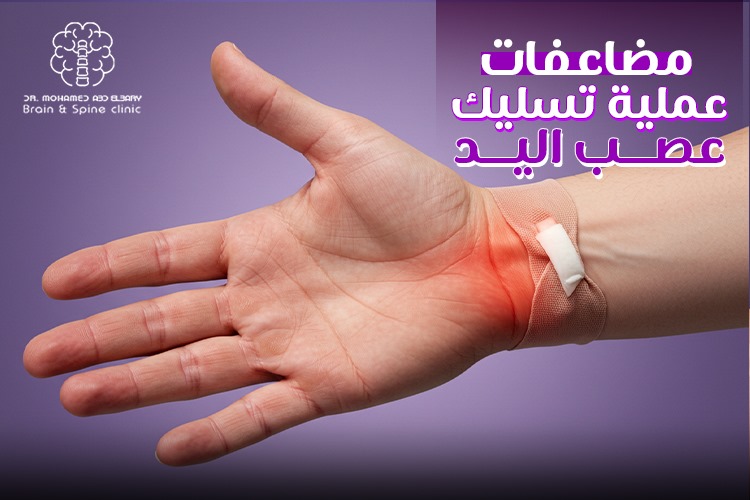
Deciding to undergo surgery is often accompanied by a mix of hope for healing and some anxiety about the results.
While nerve decompression surgery is considered a safe and successful procedure, knowing the potential complications of hand nerve decompression surgery is not a cause for fear.
Instead, it is a necessary step to make an informed decision and manage your expectations realistically.
In this article, we will transparently review the most important potential complications that may arise from hand nerve decompression surgery, ranging from rare risks like infection or nerve damage to more common issues like persistent pain.
Our goal is to provide you with complete knowledge so you are fully prepared for the recovery journey, emphasizing that adherence to the doctor's instructions can significantly minimize any potential risks.
Complications of Hand Nerve Decompression Surgery
Infection and Bleeding (Rare)
-
Infection: As with any surgical procedure, there is always a slight risk of infection at the surgical incision site. This risk can be easily controlled by using antibiotics before and after the operation and ensuring good wound care.
-
Bleeding: Minor bleeding may occur during or after the operation. This is usually managed and does not require any additional intervention.
Nerve or Tendon Damage (Very Rare)
This is one of the rarest complications, but it is the most concerning for patients. Damage to the small nerves surrounding the main nerve can cause persistent numbness or weakness in parts of the hand.
The surgeon's expertise and the use of precise techniques, such as endoscopy or a surgical microscope, significantly reduce this risk.
Symptoms Do Not Improve or Return
In some rare cases, symptoms may not improve after the operation, or they may return after a period. This can be due to:
-
Incorrect Diagnosis: The cause of the symptoms might not be nerve compression in the wrist but rather a problem in the neck or shoulder.
-
Scar Tissue Formation: Scar tissue can form around the nerve after healing, compressing it again.
Persistent Pain or Scar Sensitivity
Some patients may experience sensitivity in the scar area or discomfort when pressure is applied to it.
This issue is usually temporary and improves with time and physical therapy.
How Are These Risks Minimized?
-
Choosing the Right Surgeon: The surgeon's experience is the most important factor in minimizing risks.
-
Following Post-Operative Instructions: Adherence to the surgeon’s instructions regarding wound care, avoiding excessive activity, and performing physical therapy exercises significantly reduces complications.
-
Accurate Diagnosis: Confirming the diagnosis through clinical examination and nerve conduction studies ensures that the operation addresses the correct problem.
Understanding these risks is a fundamental part of your treatment journey. Do not hesitate to discuss them with your doctor to get satisfying answers to all your inquiries.
In conclusion, understanding the complications of any surgical procedure, even safe ones like hand nerve decompression surgery, is a vital step toward a successful treatment journey. Knowing the risks does not mean fearing them; rather, it means being able to manage and deal with them with full awareness.
We have clarified that most complications are very rare, and your commitment to the doctor’s instructions and the selection of the right surgeon greatly minimize these risks.
Always remember that the goal is to achieve the best possible outcomes, and true healing begins with knowledge and confidence in the medical team. Do not hesitate to ask all your questions, as your health is our top priority.



